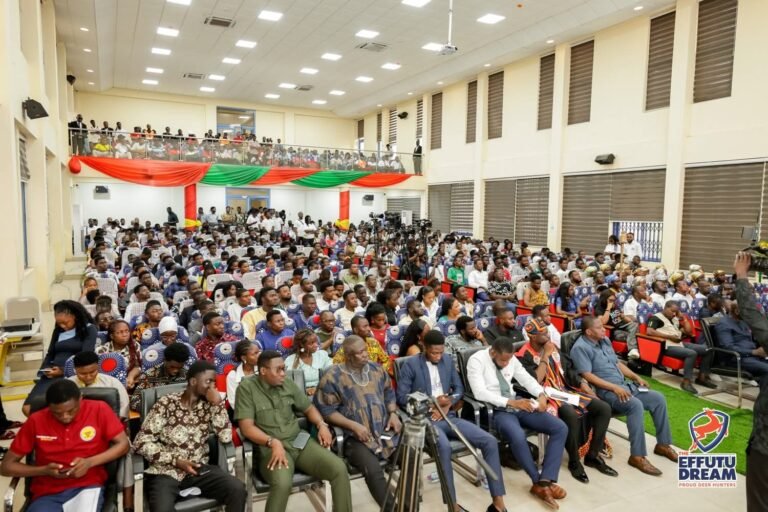
The Kumasi Metropolitan Chief Executive, Sam Pyne, has pledged commitment to the implementation of at least 70 percent of planned programmes and projects of the 2022 Annual Action Plan.
He explained that the blueprint on which the Assembly’s development hinges is the Medium-Term Development Plan, adding that the 2022-2025 MTDP had been completed and submitted to the National Development Planning Commission through the Ashanti Regional Co-ordinating Council.
To him, “one critical area my administration will focus on is local economic development. Section 12 of the Local Governance Act, 2016 (Act 936) highlights the responsibility of MMDAs in creating an enabling environment for Local Economic Development by taking a facilitating role to promote and support productive activity, social development and remove any obstacles to initiative and development – which I will keep up to the task.”
Speaking during the First Sessional Address of the Kumasi Metropolitan Assembly (KMA), Sam Pyne said the Assembly has a fundamental role to play to ensure the growth and development of businesses in the metropolis, and, in turn, lead to job creation and increase revenue for the Assembly.
What to expect
To effectively deliver on this mandate, he said the technical capacity of the core staff would be strengthened to ensure that the Local Economic Development planning process is more transparent and participatory to the needs of the private sector and other economic actors.
He added that the KMA would ensure effective collaboration among agencies at all levels of government an provide the enabling environment for the private sector, including the informal sector, to thrive at the local level.
Again, the KMA boss disclosed that his leadership had initiated action towards creating an enabling environment for business development, adding that employment generation aimed at decreasing poverty and bringing prosperity to the people would be a top priority.
In view of this, he mentioned that a Local Economic Development Technical Committee will be established to focus on addressing the bottlenecks that hinder business growth and job creation within the metropolis.
According to Sam Pyne, “they will undertake various activities aimed at strengthening the cooperation with bodies such as the Association of Ghana Industries (AGI), Business Advisory Centre (BAC), Ghana Enterprises Agency (GEA), etc to explore and harness opportunities available to growing the Small and Medium Scale Enterprises (SMEs) operating within the metropolis.”
He said that the committee would also focus on capacity development not only for the business community but for the KMA, and improve internal capacity and expertise in providing an enabling environment to foster partnership with the business community.
“The KMA, as part of its LED agenda, will create a forum where the business community, academia, and the Assembly can have dispassionate deliberations on areas such as technological advances in business methods, investment opportunities, improving information flow and market forecasts, amongst others.
“This is an opportunity to develop knowledge, which is a critical building block to tackling global competitiveness and harnessing opportunities such as the African Continental Free Trade Area (AfCFTA) initiative,” he added.
He added that the KMA in the next few years would focus on strengthening the goods and services sector – mostly made up of wholesale and retail trade, light manufacturing, agriculture, transport, storage and communication.
“Under my LED programme, the Assembly will facilitate access to finance for businesses and also explore innovative financing options that will help make financial resources available to local business operators,” he said.
“To make this a reality, the Assembly will facilitate the registration of the informal MSMEs and liaise with the Ministry of Trade and Industry as well as the Ghana Enterprise Agency to develop a list of both state and non-state credit facilities available to the SMEs, as well as explore capacity building programmes geared at strengthening management capacity and business development. These we will harness for local economic development,” Sam Pyne added.




